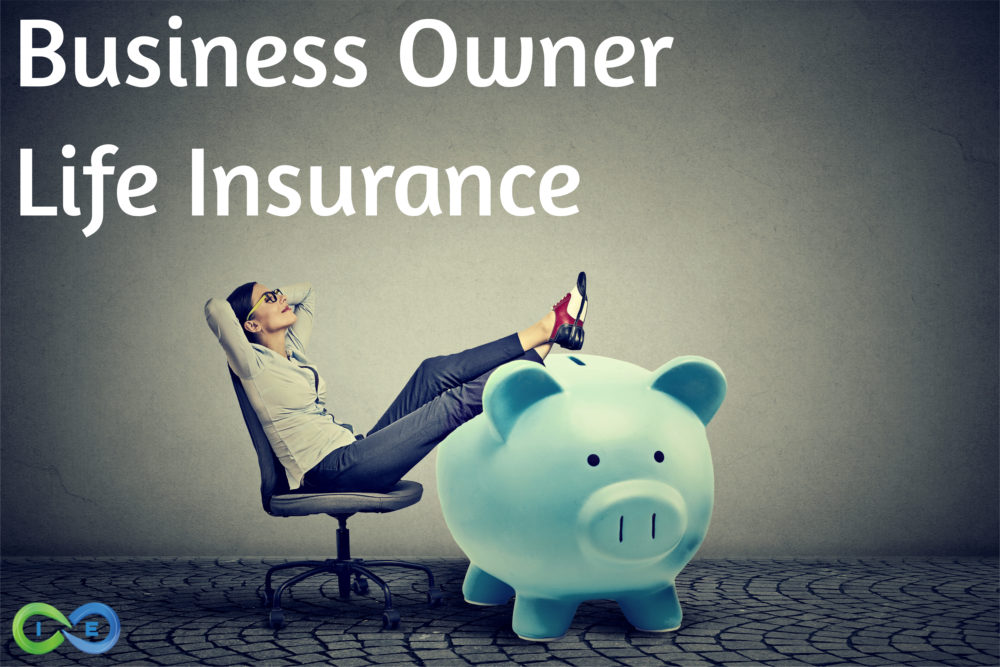Types of Life Insurance for Business Owners
Life insurance provides financial protection for business owners and their families in the event of their untimely demise. There are several types of life insurance available, each with its own advantages and disadvantages. Understanding these options can help business owners choose the right policy for their specific needs.
Term Life Insurance
Term life insurance is the most basic and affordable type of life insurance. It provides coverage for a specific period, such as 10, 20, or 30 years. If the policyholder dies during the term, the death benefit is paid to the beneficiaries. However, if the policyholder outlives the term, the policy expires without any payout.
Advantages:
- Affordable premiums
- Simple and straightforward coverage
Disadvantages:
- No cash value accumulation
- Coverage expires after the term
Whole Life Insurance
Whole life insurance provides coverage for the entire life of the policyholder, regardless of their age or health. It also accumulates a cash value component that grows over time. The cash value can be borrowed against or withdrawn for various purposes, such as education or retirement.
Advantages:
- Lifelong coverage
- Accumulates cash value
Disadvantages:
- Higher premiums than term life insurance
- Cash value growth may be slow
Universal Life Insurance
Universal life insurance combines features of both term and whole life insurance. It provides lifelong coverage, but also offers flexibility in premium payments and death benefit amounts. The cash value component earns interest at a variable rate, which can affect the overall value of the policy.
Advantages:
- Lifelong coverage
- Flexible premium payments and death benefit amounts
- Potential for higher cash value growth than whole life insurance
Disadvantages:
- Premiums can be higher than term life insurance
- Cash value growth is not guaranteed
Factors to Consider When Choosing Life Insurance

When selecting a life insurance policy, business owners should carefully consider several key factors that can significantly impact the cost and coverage of the policy. These factors include:
Age
Age is a crucial factor that influences life insurance premiums. Younger individuals typically pay lower premiums than older individuals because they have a lower risk of dying prematurely. As age increases, so does the risk of health issues and mortality, leading to higher premiums.
Health
Health status plays a significant role in determining life insurance premiums. Individuals with good health and no pre-existing conditions are generally eligible for lower premiums compared to those with health concerns. Life insurance companies assess health through medical exams and lifestyle information to determine the applicant’s risk level.
Business Needs
The specific needs of the business should also be considered when choosing a life insurance policy. For example, businesses with key employees or partners may require key person insurance to protect against the financial impact of losing a vital member. Additionally, businesses with outstanding loans or debts may consider purchasing a loan protection policy to ensure that these obligations are met in the event of the business owner’s death.
Benefits of Life Insurance for Business Owners
Life insurance provides several financial benefits for business owners. It safeguards the business from financial setbacks in the event of the owner’s demise, ensuring its continuity. It also facilitates succession planning, guaranteeing a smooth transition of ownership. Furthermore, life insurance serves as an incentive for attracting and retaining key employees, fostering a sense of security and commitment within the organization.
Protecting the Business from Financial Loss
The unexpected loss of a business owner can have severe financial consequences for the enterprise. Life insurance provides a financial cushion, ensuring that the business has the necessary funds to cover expenses, repay debts, and maintain operations during the transition period. It prevents the business from collapsing due to the owner’s untimely demise.
Providing Funds for Succession Planning
Succession planning is crucial for ensuring the smooth continuation of a business after the owner’s departure. Life insurance can provide the necessary funds to facilitate this transition. It can cover the costs of training the successor, purchasing additional equipment, or making other necessary adjustments to ensure a seamless handover of ownership.
Attracting and Retaining Key Employees
Life insurance can serve as an attractive employee benefit, helping businesses attract and retain key employees. It demonstrates the employer’s commitment to the well-being of its workforce and provides a sense of security for employees and their families. This can lead to increased employee loyalty and reduced turnover, contributing to the overall stability and success of the business.
Tax Implications of Life Insurance
Life insurance policies offer several tax benefits for business owners, making them a valuable financial planning tool. Understanding these implications can help business owners maximize the advantages of life insurance.
Tax-free Death Benefits
The death benefit paid out from a life insurance policy is generally tax-free for the beneficiaries. This means that the proceeds can be used to cover expenses, pay off debts, or provide financial security for loved ones without being subject to income tax.
Tax-deferred Cash Value Growth
Whole life and universal life insurance policies accumulate cash value over time. This cash value grows tax-deferred, meaning that no taxes are due on the earnings until the money is withdrawn. The cash value can be borrowed against or withdrawn for various purposes, such as retirement income or emergency expenses.
Taxable Income from Policy Withdrawals
Withdrawals from the cash value of a life insurance policy are generally taxable as ordinary income. However, if the policy is surrendered or lapses, the entire cash value may be subject to income tax. It’s important to carefully consider the tax implications of withdrawals before accessing the cash value.
Choosing a Life Insurance Provider
Selecting the right life insurance provider is crucial for business owners. Consider these factors:
Financial Stability
Assess the company’s financial strength and ratings from independent agencies like AM Best or Standard & Poor’s. A stable provider ensures your policy will be honored.
Customer Service Reputation
Research the provider’s reputation for responsive and helpful customer service. You’ll want a provider that is easily accessible and resolves issues promptly.
Policy Options and Flexibility
Compare the types of life insurance policies offered and their flexibility. Choose a provider that provides options tailored to your business’s specific needs, such as term life, whole life, or universal life.
Additional Considerations
In addition to the essential aspects of life insurance, business owners should consider the following:
Riders and Endorsements
Riders and endorsements are additional features that can be added to a life insurance policy to enhance its coverage. These may include:
- Waiver of premium rider: This rider waives the premium payments if the insured becomes disabled.
- Accidental death benefit rider: This rider provides additional coverage in case of accidental death.
- Guaranteed insurability rider: This rider allows the insured to purchase additional coverage in the future without having to undergo a medical exam.
Disability Income Insurance
Disability income insurance provides a source of income if the insured becomes disabled and unable to work. This insurance can help cover the costs of medical expenses, living expenses, and other financial obligations.
Estate Planning
Life insurance can be used as a tool for estate planning. By designating a beneficiary, the business owner can ensure that the proceeds of the policy will go to their intended recipients upon their death.



